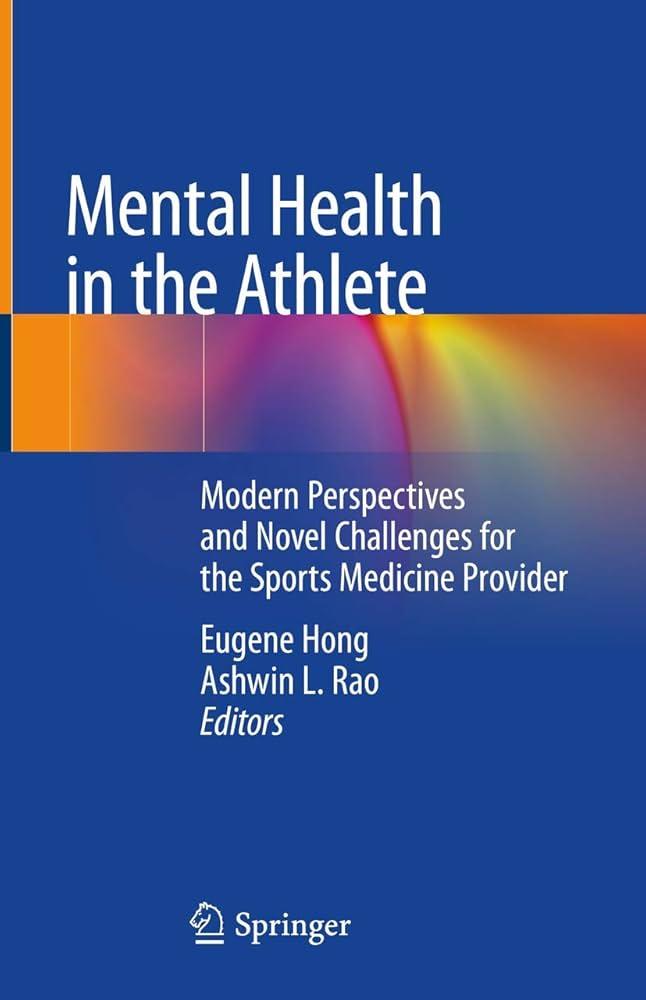In the high-stakes world of elite sports, the pressure to perform often overshadows the personal experiences of the athletes themselves. A new report from The Sport Information Resource Centre sheds light on this dynamic, capturing candid voices of athletes as they reveal when they feel safe-and distinctly unsafe-within high performance cultures. Through these firsthand accounts, the report offers a rare glimpse into the complex environment that shapes not only athletic achievement but also mental well-being, sparking important conversations about the culture that underpins top-tier competition.
Feeling Vulnerable in the Spotlight Athletes Speak Out on Pressure and Mental Health
Across the sports world, athletes are unmasking the often invisible emotional toll that high-performance culture exacts. Many describe moments where the exhilarating rush of success sharply contrasts with waves of insecurity and isolation. A common thread emerges from their testimonies: an intense internal battle between resilience and vulnerability. “I feel unsafe when I’m expected to never show weakness,” shares a professional swimmer, while a decorated gymnast admits, “Pressure to perform often silences my need to speak up about burnout.” These candid admissions reveal a culture that, despite its pursuit of excellence, frequently neglects the basic human need for psychological safety and support.
- Fear of Judgment: Athletes often hide struggles fearing public or coach criticism.
- Lack of Support Systems: Many recount insufficient mental health resources within teams.
- Performance vs. Personhood: Identity tied exclusively to results creates emotional fragility.
| Athlete Quote | Pressure Source | Impact |
|---|---|---|
| “I feel unsafe when falling short means being sidelined.” | Coach expectations | Increased anxiety |
| “I feel safe when teammates encourage honest conversations.” | Team culture | Improved wellbeing |
| “I feel unsafe when social media amplifies every mistake.” | Public scrutiny | Self-doubt & stress |
Experts emphasize that transforming the dialogue around mental health in elite sports requires more than just lip service. It demands that institutions prioritize compassionate leadership and embed mental health education as a standard part of athletic development. The voices rising from within the ranks report that feeling valued beyond medals and times can be a pivotal step toward nurturing both performance and personal welfare. As one track star puts it, “I perform best when I feel safe enough to be human first.”
Breaking the Silence Coaches and Organizations Respond to Safety Concerns in High Performance Sport
In response to growing concerns about athlete welfare, coaches and organizations are taking decisive steps to foster environments where safety is prioritized alongside performance. Many training programs have introduced comprehensive education on mental health, abuse prevention, and respectful communication. These initiatives aim to break the long-standing culture of silence surrounding harmful behaviors, empowering athletes to voice their experiences without fear of retaliation. Key strategies include mandatory workshops, confidential reporting mechanisms, and the appointment of athlete advocates who serve as trusted points of contact.
Common measures implemented include:
- Regular mental health check-ins integrated within coaching sessions
- Clear, enforceable codes of conduct for all staff and athletes
- Anonymous reporting platforms to ensure privacy and protection
- Ongoing training for coaches on power dynamics and boundary-setting
| Response Area | Action Taken | Reported Outcome |
|---|---|---|
| Communication | Open forums for athlete feedback | Increased trust and transparency |
| Education | Workshops on consent and ethics | Enhanced awareness and prevention |
| Support | 24/7 access to counseling services | Improved athlete well-being |
Creating Trust Building Support Systems for Athletes Beyond the Competition
Building reliable support structures for athletes goes beyond just physical training and competition schedules. Athletes consistently emphasize the importance of emotional safety and transparent communication channels that nurture their wellbeing throughout every phase of their careers. Trust is cultivated when coaches, teammates, and support staff actively listen, validate concerns, and respond with empathy rather than pressure. According to multiple anonymous testimonies, the presence of confidential mental health resources and peer support groups significantly reduces the isolation often felt in high-performance environments.
Implementing tailored support systems requires a deliberate, multi-faceted approach that recognizes the unique stressors of elite sport. Key elements identified by athletes include:
- Accessible psychological services specialized in sports contexts
- Regular check-ins beyond training metrics, focusing on emotional state
- Safe spaces for open dialogue without fear of judgement or repercussions
- Education programs on mental health for all team members
These components collectively create an environment where athletes can thrive not only in their sport but also as individuals, fostering resilience that translates into lasting career sustainability.
| Support Element | Impact on Athlete Experience |
|---|---|
| Confidential Counseling | Enhances trust and emotional release |
| Mental Health Education | Reduces stigma within teams |
| Peer Support Groups | Builds camaraderie and shared understanding |
| Regular Wellbeing Check-Ins | Identifies issues before they escalate |
Cultivating Change Implementing Policies That Prioritize Athlete Wellbeing and Safety
Recent discussions among athletes reveal a pressing need for policies that move beyond performance metrics to truly prioritize wellbeing and safety. Athletes consistently highlight gaps in current systems, where physical success often eclipses mental health and personal security. To effectively shift this paradigm, sports organizations must embrace transparent, enforceable guidelines that center the athlete’s holistic experience-encompassing mental health support, injury prevention, and a culture that challenges harmful norms.
Key components recommended by athlete advocates include:
- Mandatory mental health resources accessible at all levels of sport
- Strict enforcement of anti-harassment and abuse policies
- Regular education programs for coaches, staff, and athletes on safety and consent
- Clear reporting mechanisms that protect whistleblowers and maintain confidentiality
| Policy Focus | Impact on Athlete Wellbeing | Implementation Priority |
|---|---|---|
| Mental Health Access | Reduces stigma & encourages early intervention | High |
| Safe Reporting Channels | Increases trust and accountability | Critical |
| Education & Training | Empowers informed, respectful interactions | Medium |
| Performance vs. Wellbeing Balance | Promotes sustainable careers | High |
Insights and Conclusions
As athletes continue to speak out about their experiences within high performance culture, it becomes clear that feelings of safety-or the lack thereof-play a crucial role in both their well-being and success. The insights shared through The Sport Information Resource Centre shed light on the complex dynamics at play, urging coaches, organizations, and stakeholders to foster environments where athletes can thrive without fear. Addressing these concerns is not only vital for safeguarding athletes’ mental and physical health but also for the future integrity and sustainability of competitive sport. The conversation is ongoing, and the call for change grows ever more urgent.





